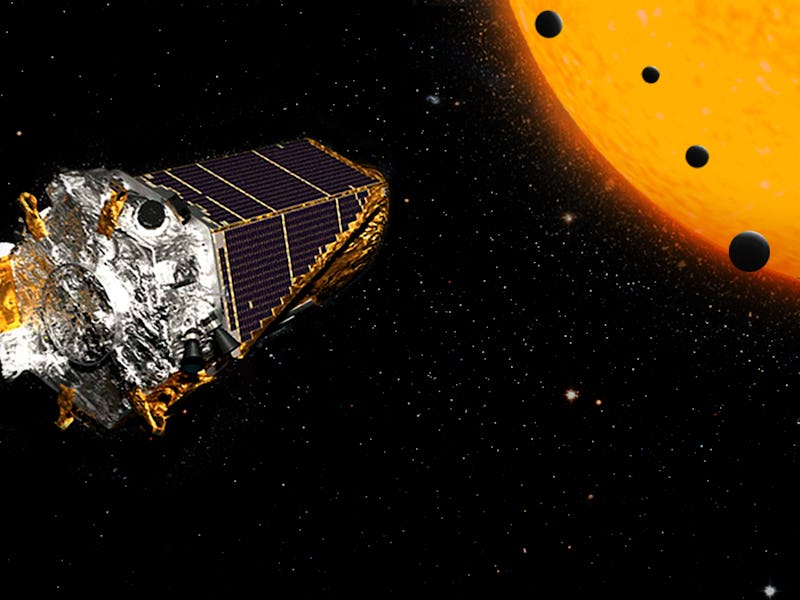NASA’s got something up its sneaky ol’ sleeve, and on Thursday, we finally find out what it is. But because we’re nerdy and impatient, Inverse asked some scientists to tell us what they think the news might be.
Here’s what we know for sure: Today at 1 p.m. Eastern, NASA will announce some sort of discovery involving its exoplanet hunting Kepler space telescope and Google. According to a press release, the discovery was “made by researchers using machine learning from Google.”
Before you get too excited, it’s worth noting that the announcement definitely won’t be about discovering aliens. Sadly, it’s never aliens. Still, the announcement could have interesting implications for planetary scientists and astrobiologists.
Seth Shostak, SETI Senior Astronomer:
“I think I’ve heard rumors about an eighth planet in a seven-planet system (TRAPPIST-1?), which would give our own solar system some company — another solar system with eight planets!” Shostak tells Inverse. “But I’ve also heard rumors about a possible moon around a small body in the outer solar system. Bottom line? I don’t know what it is!”
Jonathan McDowell, astronomer at the Harvard-Smithsonian Center for Astrophysics:
McDowell says it could be about a new exoplanet-hunting technique.
“My guess is that they’ve leveraged a Google machine learning algorithm to dig out a bunch of new faint planets from the K2 data,” McDowell tells Inverse. Makes sense, especially considering the nuggets of information in NASA’s press release from December 8.
Artist's rendition of one of the TRAPPIST-1 planets.
Caitlin Ahrens, an astronomer at the University of Arkansas:
Ahrens has an interesting idea that’d be especially exciting for artists who create images of what exoplanets’ surfaces might look like.
“I hope it’s one of these: A new way to view exoplanet atmospheres, or a [new way to view] planets around white dwarfs,” the says.
The Kepler space telescope launched in 2009 and completed its first mission — observing stars in the Cygnus-Lyra region — back in 2012. It then entered its K2 mission, and has done an outstanding job studying exoplanets — in the K2 phase alone, it’s discovered 515 exoplanet candidates and 184 confirmed exoplanets.
While we don’t know what Thursday’s announcement will hold, one thing is true: it’ll be well worth the wait and infuriating levels of mystery.
